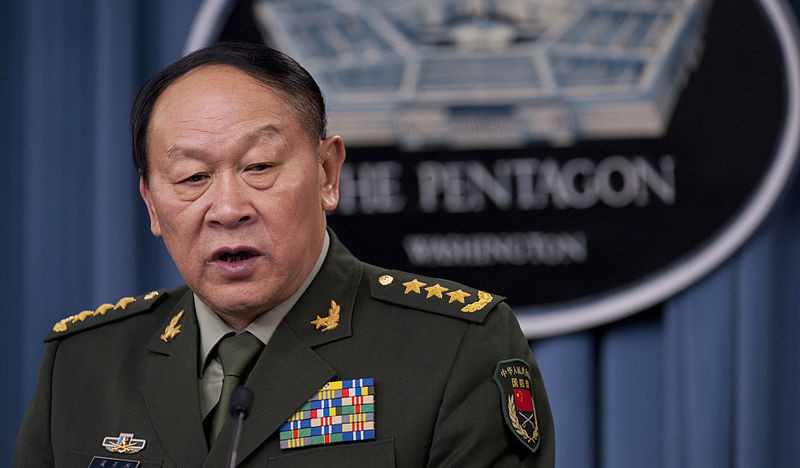President Barack Obama’s second term has been tainted by numerous instances of questionable uses of executive power, including the IRS intimidation scandal, NSA snooping and a litany of executive orders telling the Justice Department to disregard laws such as the Defense of Marriage Act and marijuana legislation. Leaders on the other side of the world seem to be following suit, institutionalizing unchecked executive power. At the Third Plenary Session of the 18th Communist Party of China (CPC) Central Committee on November 2013, the party congress established a national security committee modeled after its American counterpart. This structure empowers the small committee of officials to authorize secretive unilateral actions, allowing them to bypass government bureaucracy, which can be cumbersome even in an undemocratic, oligarchic state such as China. While this would improve efficiency in protecting national interests, it also dramatically increases the risk of abuse of government power. This announcement came just two weeks after a Uighur separatist from the restless northwestern province of Xinjiang drove his car into Tiananmen Square, where it exploded, killing five. The CPC is attempting to strengthen its ability to counter such attacks which are becoming exceedingly common.

On January 24, president Xi Jinping was appointed chair of the new national security committee, effectively giving him unrestrained power to make decisions on such matters of national security, including sidestepping the judicial system and ordering the use of force to preserve social order. While Xi also chairs other influential bodies such as the Central Military Commission, his powers there are checked by bureaucratic red tape and inter-party politics; not so in this new committee. Ostensibly, the focus of his directives will most certainly be domestic. Beijing has noted its commitment, especially in areas such as Tibet and Xinjiang where ethnic minorities are actively resisting government persecution, to combating the “three evils”: terrorism, separatism and religious extremism. The issue present here is that what the government views as terrorism or separatism, others claim as their fight for self-determination or personal liberty.
The first year of Xi’s term as head of state has seen genuine commitment to Party reform and economic sustainability. In the communiqué issued from last year’s Third Plenum, the CPC laid out quite radical plans to “develop socialist democracy, … improve multi-party cooperation and the system of regional ethnic autonomy and grassroots autonomy [with] more focus on sound democratic system.” This type of language, coupled with visible signs of its implementation, is encouraging. President Xi has proven far more successful than his predecessor, Hu Jintao, as a charismatic leader who can appease the masses. Optimism is flooding Chinese society as the government has acknowledged corruption and the need to liberalize, whereas previously, changes in policy were implemented without admitting that the strict communist and authoritarian system must change. Chinese citizens today are experiencing unprecedented economic freedom as the CPC is moving towards neoliberal market-based reform. At the same time, though, subtle moves have been made to bolster centralized control over the population, including the enactment of harsh internet censorship laws and, now, the creation of a committee on national security. Economically, China is progressing; socially, it is regressing.
Chinese society is currently enduring a political and security crackdown. President Xi defends the government’s efforts, claiming that “[s]tate security and social stability are preconditions for reform and development.” Thus, the Party’s hardline policies are a necessary prospect in order to maintain consistent development. Bloody protests litter the history of the People’s Republic of China, the Tiananmen Square Massacre in 1989 being the penultimate symbol of the peoples’ struggle against oppression. Terrorist acts in the far-western province of Xinjiang threaten wildly profitable natural resource extraction and transport. The government has also responded to the self-immolation of Tibetan monks with a strong hand. Since 2009, over 120 Tibetans have taken their lives by this practice in active resistance to Chinese rule which the government labels as terrorist acts posing a threat to China’s territorial integrity and societal stability.
Indubitably, intense political protest and violent social turmoil are impediments to development. Conservative officials within the CPC are confident at the prospects of the national security committee in pacifying such unrest to strengthen the foundation on which to maintain torrid growth. Qin Gang, a spokesman for the Foreign Ministry, offered this warning: “Doubtless, with China’s establishment of the state security committee, terrorists will be nervous, separatists will be nervous, religious extremists will be nervous. In short, those who threaten and damage China’s security will be nervous.” The consolidation of state security power and decision-making will increase the government’s ability to strategize, coordinate and enforce security measures, most of which will certainly be directed at dissenters.
The modern Chinese state has made remarkable advancements since Deng Xiaoping’s economic reforms in the late 1980s. So remarkable, in fact, is China’s economic growth and social development that it is unprecedented in world history. This dramatic opening up and reform of a failing command economy was carried out under the auspices of strong central control. Today, as Xi Jinping tries to follow in Deng’s footsteps of creating an economic miracle, he, too, is using a stick to supplement the carrot. Xi has made it a point to strengthen the Party’s ability to quell unrest and suppress dissent by creating a national security committee. This committee is tasked with creating national security strategies and given the unilateral power to respond to the “three evils.”
Progress in China seems to take two steps forward and two steps back. Chinese people today face an interesting dichotomy. In the economic arena, they enjoy economic freedom and opportunities previously unimaginable to them. Socially and politically, however, their lives are gravely restricted. President Xi has pursued each of these two distinct paths thus far. As the smell of liberty becomes more pungent to the Chinese citizen, one of these paths of policy will give way to the other. The effectiveness of the new national security committee will be a major determining factor to this end.
